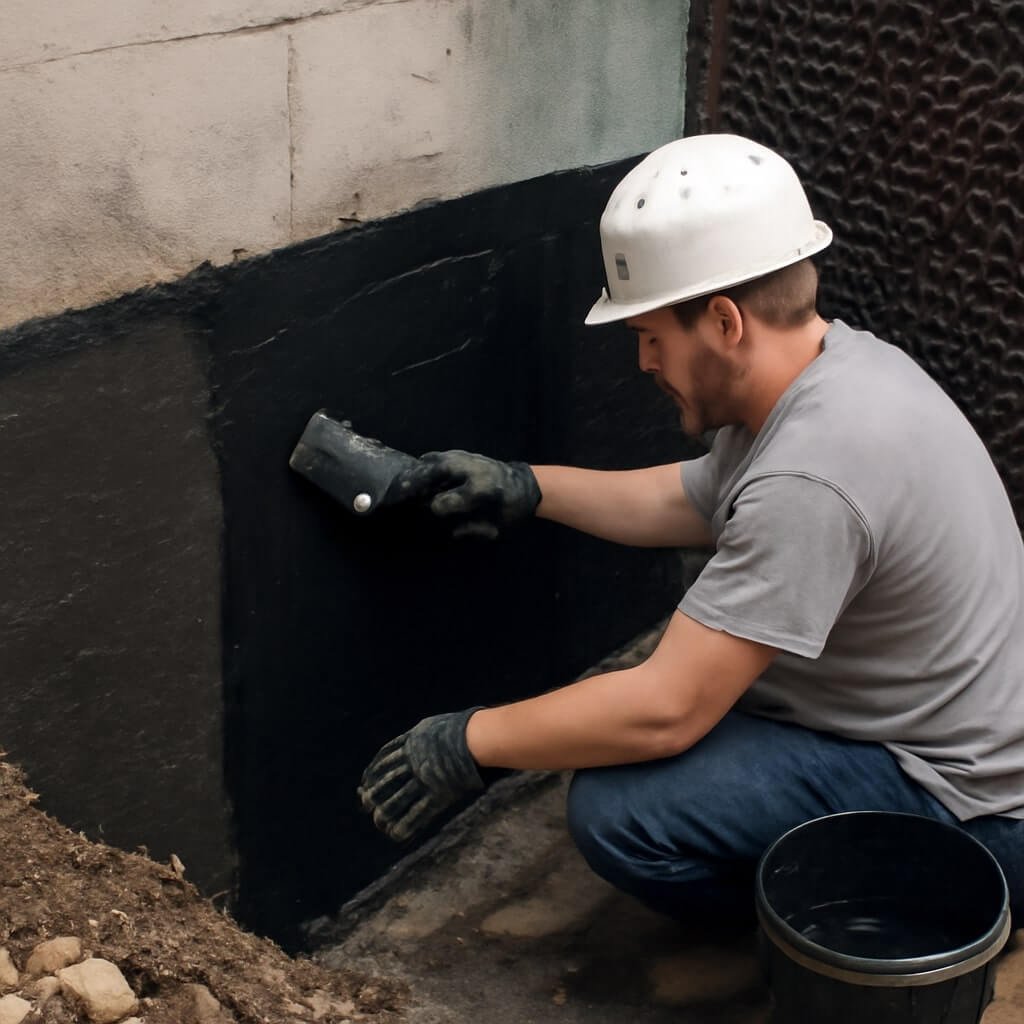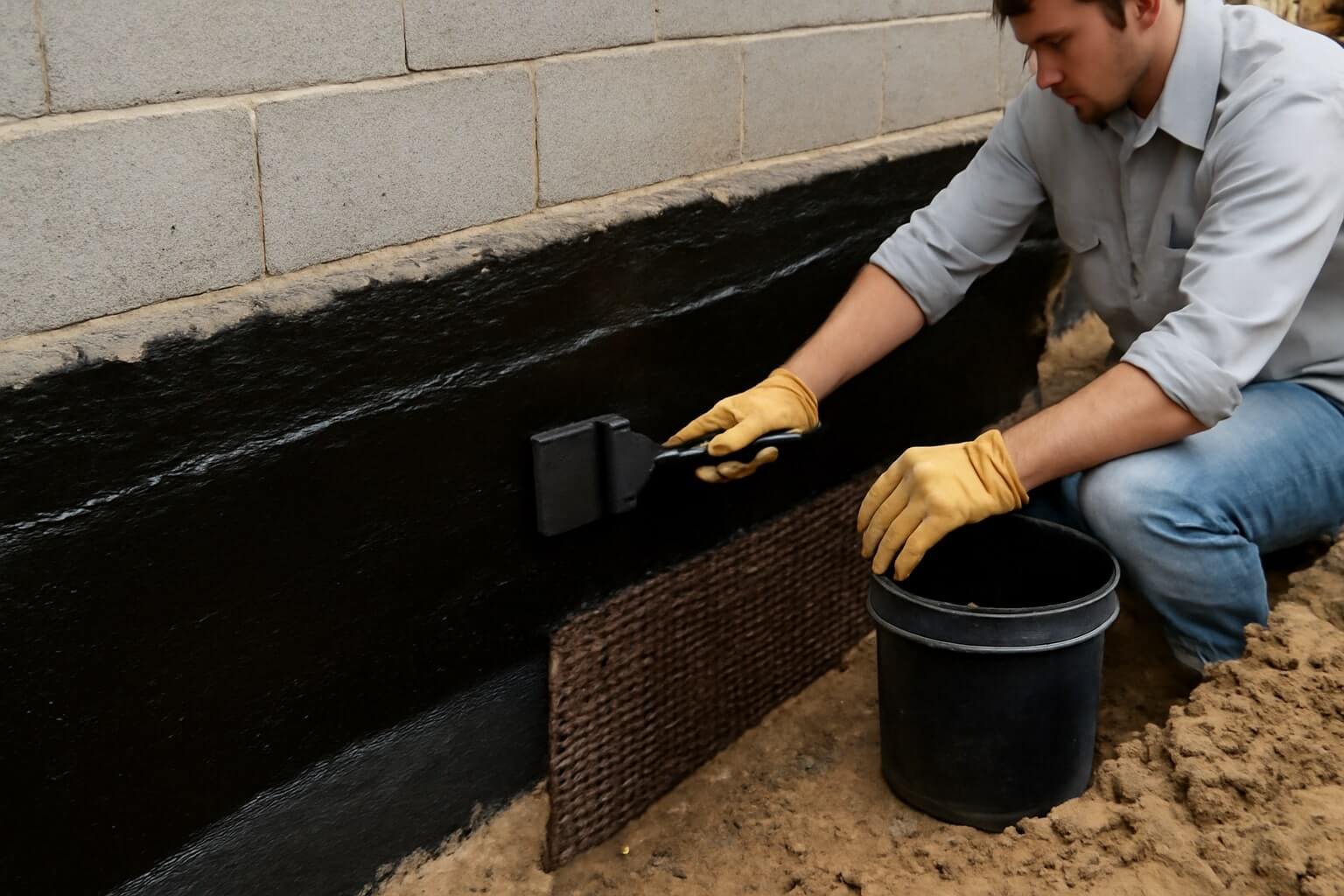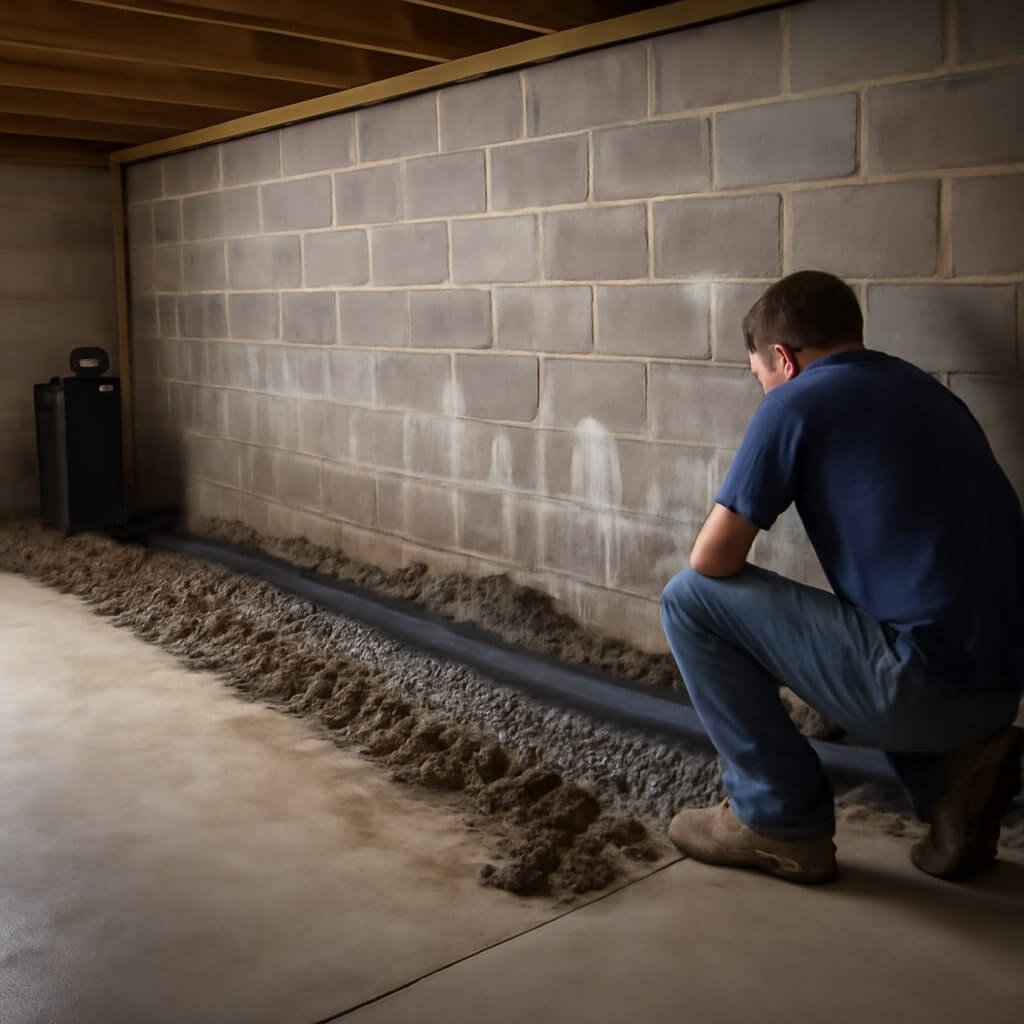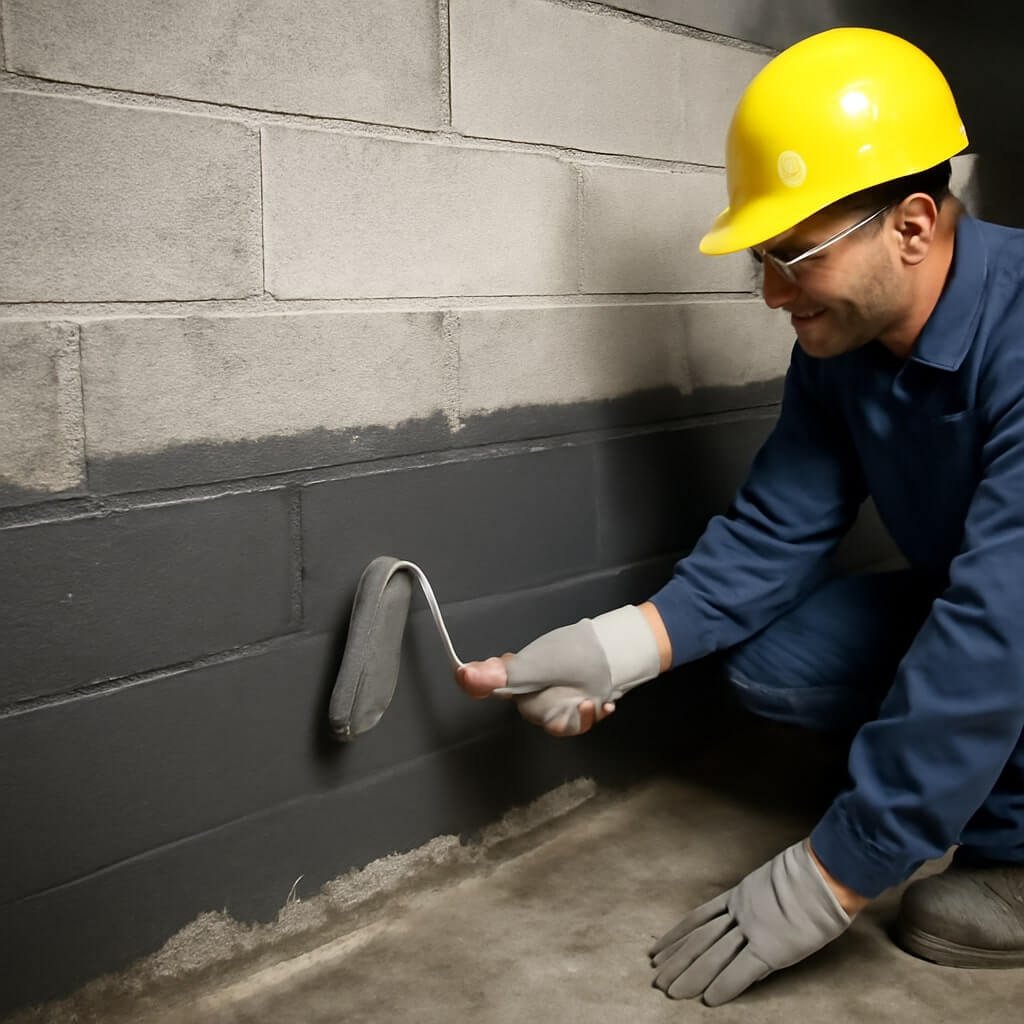Basements are a crucial part of many homes, providing extra living or storage space. But because they are located below ground level, they’re especially vulnerable to water intrusion. That’s why discovering the best basement waterproofing materials is essential for any homeowner aiming to protect their property from costly water damage, mold growth, and structural issues.
Basement waterproofing isn’t just about slapping on a quick coat of paint or hoping for the best. It involves a strategic approach using specialized materials designed to block, divert, or drain water. In this guide, you’ll learn about the best products and solutions that stand the test of time and weather, ensuring your basement stays dry, healthy, and secure.
Why Basement Waterproofing is Essential
Water can be the silent enemy of your home’s foundation. Even small leaks can lead to significant damage over time. Here are some reasons why investing in the right waterproofing materials is critical:
- Prevents Structural Damage: Water seepage weakens concrete and masonry, leading to cracks and foundation problems.
- Protects Against Mold and Mildew: Damp environments foster mold growth, which can affect indoor air quality and health.
- Increases Property Value: A dry basement adds to the overall market value and appeal of your home.
- Avoids Costly Repairs: Early waterproofing investment can save thousands by preventing water damage repairs.
Understanding these benefits highlights why you should prioritize quality materials and proper installation techniques when waterproofing your basement.
Types of Basement Waterproofing Materials
Basement waterproofing materials come in several forms, each suited for different applications and conditions. Let’s explore the major categories to get a clear picture.
Waterproofing Membranes
These are thin sheets or layers applied to basement walls or floors to create a water-impermeable barrier. Membranes can be self-adhesive or liquid-applied and are often made of rubberized asphalt or synthetic materials like PVC.
Sealants and Coatings
Sealants fill cracks and joints, preventing water from seeping in. Coatings like cementitious or epoxy provide a waterproof layer on concrete surfaces, enhancing moisture resistance.
Drainage Boards and Panels
Installed outside basement walls, drainage boards divert water away from the foundation, reducing hydrostatic pressure and preventing leaks.
Injection Materials
Used to fill cracks or voids, injection materials like polyurethane foams or epoxy resins expand and seal leaks from within the structure.
Bentonite Clay Sheets
These natural clay sheets swell upon contact with water, forming a tight waterproof barrier, and are often used in green building waterproofing.
Sump Pumps and Drainage Systems
Mechanical systems like sump pumps collect and remove water that gathers beneath the basement floor, preventing flooding.
Top 15 Basement Waterproofing Materials and Products
Here’s an in-depth look at the 15 best basement waterproofing materials that professionals and homeowners trust.
1. Liquid Waterproofing Membranes
Liquid membranes are brush, roll, or spray-applied, forming a seamless, flexible, waterproof layer. They’re ideal for complex shapes and cracks.
2. Cementitious Coatings
Made from cement and waterproofing additives, these coatings are easy to apply and bond well with concrete, making them perfect for interior basement walls.
3. Polyurethane Sealants
Flexible and durable, polyurethane sealants are excellent for sealing joints and cracks, especially where movement is expected.
4. Epoxy Coatings
Epoxy provides a tough, chemical-resistant barrier ideal for basements exposed to heavy water pressure or chemicals.
5. Bituminous Coatings
Also known as asphalt coatings, these are widely used for exterior basement walls due to their excellent waterproofing and adhesion properties.
6. PVC Waterproofing Membranes
These synthetic sheets are durable and resistant to punctures, UV rays, and chemicals, suitable for both interior and exterior applications.
7. Spray-Applied Coatings
Spray polyurethane foam or acrylic coatings offer fast application and excellent coverage on irregular surfaces.
8. Bentonite Clay Panels
Used mostly in below-grade waterproofing, these panels swell when wet to create a watertight seal around foundations.
9. Injection Grouts
These materials penetrate deep into cracks and hard-to-reach areas, sealing leaks effectively from the inside.
10. Drainage Boards
Corrugated or flat drainage panels channel water away from the foundation, preventing build-up against walls.
11. Sump Pumps
A vital mechanical component, sump pumps quickly remove water that collects in basement pits, helping avoid flooding.
12. Waterproofing Paints
Specialized paints with waterproof additives provide an easy, cost-effective solution for minor moisture problems.
13. Foam Sealants
Expanding foam sealants are useful for filling gaps around pipes, vents, and other penetrations to prevent water intrusion.
14. Foundation Sealers
Applied to foundation walls, these sealers penetrate the masonry to repel water and reduce dampness.
Factors to Consider When Choosing Basement Waterproofing Materials
Choosing the right waterproofing material depends on several factors:
- Basement Condition: Existing cracks, moisture levels, and wall types affect material choice.
- Climate and Soil Type: Areas with heavy rainfall or high water tables need more robust solutions.
- Installation Method: Some materials require professional installation, while others are DIY-friendly.
- Budget: Material costs and long-term maintenance expenses should be balanced.
- Durability and Lifespan: Opt for materials known to last and withstand harsh conditions.
- Environmental Impact: Eco-friendly materials might be preferred in sustainable building projects.
Installation Techniques for Basement Waterproofing
Proper installation is just as crucial as material quality. Common techniques include:
- Surface Preparation: Cleaning and repairing cracks before application.
- Applying Multiple Layers: Many materials require several coats or layers.
- Sealing Joints and Corners: Special attention to vulnerable areas.
- External Excavation: For some membranes and drainage boards, digging around the foundation is necessary.
- Using Sump Pumps: Proper pit installation and drainage setup to handle groundwater.
Maintenance Tips to Extend Waterproofing Life
Maintaining your basement’s waterproofing system prolongs its effectiveness:
- Inspect walls and floors for cracks regularly.
- Clean gutters and downspouts to prevent water pooling.
- Test sump pumps at least twice a year.
- Reapply sealants or coatings as recommended by manufacturers.
- Control basement humidity with dehumidifiers.
Common Basement Waterproofing Mistakes to Avoid
- Using low-quality or inappropriate materials.
- Skipping surface preparation.
- Ignoring external drainage issues.
- Poor installation of sump pumps or drainage systems.
- Neglecting routine maintenance.
Frequently Asked Questions (FAQs)
1. What is the best waterproofing material for a basement?
The best material depends on your basement’s condition, but liquid waterproofing membranes and cementitious coatings are among the most popular due to their ease of use and effectiveness.
2. Can I waterproof my basement myself?
Yes, many products are designed for DIY applications, but complex jobs involving external excavation or sump pump installation usually require professionals.
3. How long do basement waterproofing materials last?
Most high-quality materials last between 10 to 30 years, depending on conditions and maintenance.
4. Does waterproofing stop mold growth?
Waterproofing reduces moisture, which helps prevent mold, but it’s important to address existing mold separately.
5. Are there eco-friendly waterproofing options?
Yes, bentonite clay panels and some water-based sealants offer greener alternatives.
6. How much does basement waterproofing cost?
Costs vary widely based on materials, basement size, and labor, but typically range from $3,000 to $10,000 for professional jobs.
Conclusion: Protect Your Home with the Right Waterproofing Materials
Discovering the best basement waterproofing materials means investing in your home’s future. From liquid membranes and sealants to drainage systems and sump pumps, the right combination of products tailored to your basement’s needs can save you from costly repairs and health hazards. Remember, proper installation and regular maintenance are just as important as choosing quality materials. With the right approach, your basement will stay dry, safe, and valuable for years to come.




